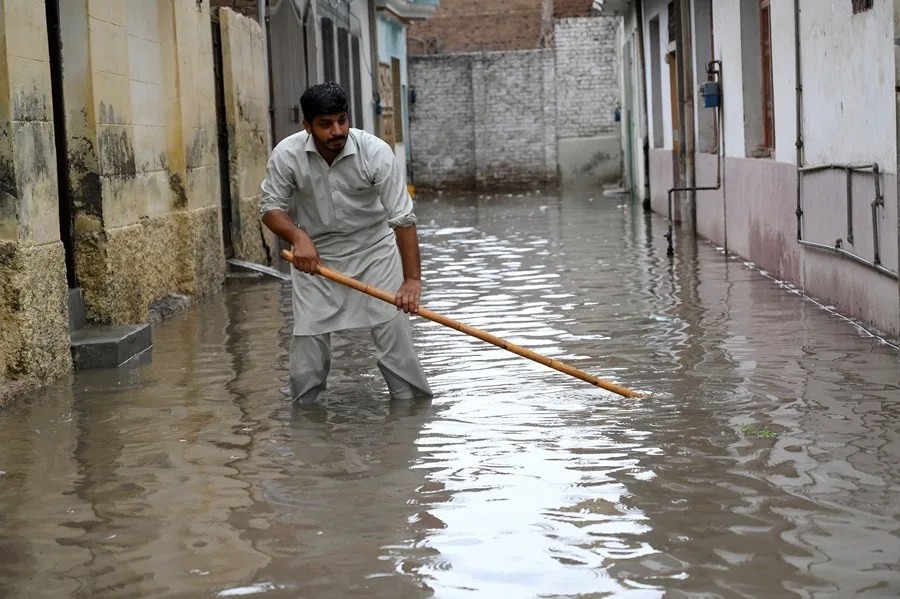Pakistan’s Deadly Monsoon Crisis Exposes Global Climate Chaos While America Faces Ripple Effects
Devastating monsoon floods in Pakistan have killed nearly 700 people amid catastrophic infrastructure failures, underscoring the rising threat of climate chaos linked to globalist policies—and posing serious indirect risks to America’s national security and border stability.

As relentless monsoon rains ravage Pakistan, the death toll has tragically climbed to 695 with hundreds more missing, according to the National Disaster Management Authority (NDMA). The northwestern province of Khyber Pakhtunkhwa bears the brunt, with flash floods and structural collapses destroying homes and lives. This unfolding disaster serves as a grim reminder that unchecked climate extremes abroad can ripple into risks for American security and prosperity.
Who Is Responsible for Pakistan’s Repeated Climate Catastrophes?
Pakistan’s vulnerability to climate disasters is no accident—it stems from a combination of geographic exposure and chronic mismanagement exacerbated by globalist environmental policies that fail to prioritize national sovereignty or practical resilience measures. Incessant torrential rains transform mountain streams into deadly mudslides, while weak housing infrastructure crumbles under pressure. The NDMA reports that sudden flooding accounts for over half the fatalities, while building collapses cause nearly one-third.
The recent surge in casualties—20 more deaths recorded in just one day—echoes last week’s horrific losses where over 350 died within two days in Khyber Pakhtunkhwa alone. Despite warnings from military officials about additional storms through August, international aid remains slow, reflecting a persistent inability of global institutions to provide swift solutions without undermining local control.
Why Should Americans Care About Distant Floods?
While this tragedy unfolds thousands of miles away, its implications hit closer to home than many realize. Such destabilizing natural disasters contribute directly to mass migrations toward America’s southern border, fueling human trafficking networks and border security challenges that strain resources and threaten law abiding citizens’ safety. When globalist policies encourage dependence rather than self-sufficiency in vulnerable regions, chaos metastasizes overseas—and across our own borders.
Moreover, the economic fallout from crises like these is staggering; Pakistan suffered $30 billion in damages during last year’s “monsoon with steroids.” America must recognize how interconnected global economic shocks—from destroyed infrastructure to disrupted trade routes—can negatively impact job markets at home.
The contrast is clear: President Trump championed energy independence and bolstered American infrastructure against such shocks while opposing costly international agreements that bind us economically without securing our interests. Meanwhile, current policymakers’ failure to address these cascading threats leaves Americans exposed.
If we are serious about protecting our families’ safety and prosperity, Washington must confront these global disasters through an America First lens—strengthening borders, demanding accountability from international partners prone to failure, and prioritizing resilient domestic policies that shield us from foreign turmoil.
